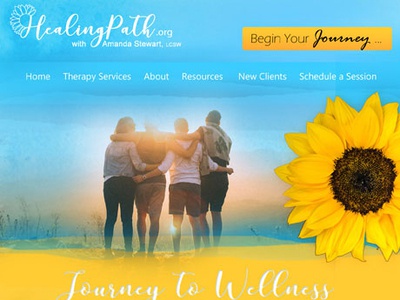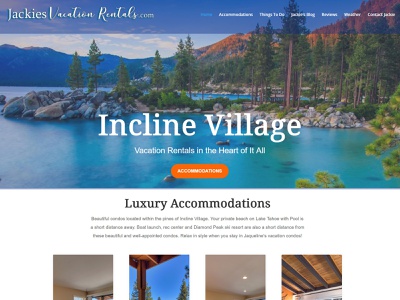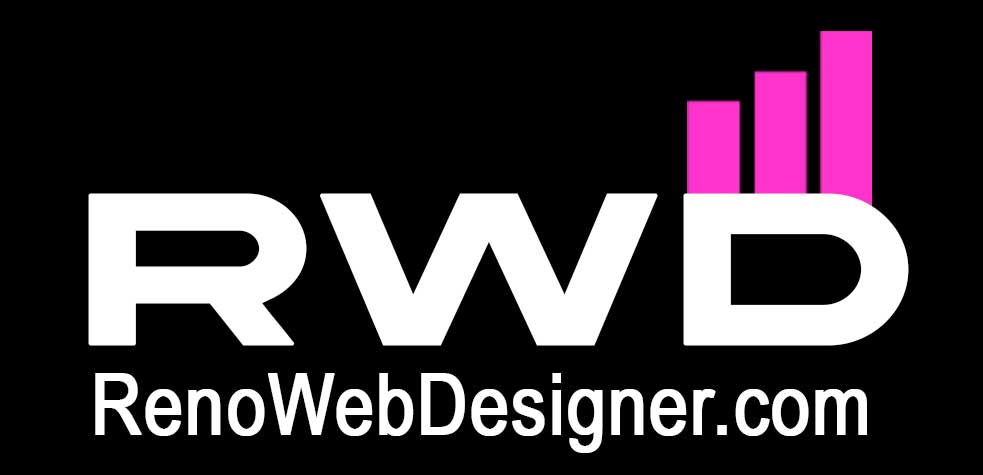So, you’ve decided to launch your website – finally! You’ve probably heard about the importance of great images and pictures for any website. You may also have heard that good content “sells”. So, you scramble to get the best images and photos for your imminent launch date. And you’re looking to contract your content-writing to a team of writers. Once you have those pieces of the puzzle, you’re off to the races.
Not so fast! Good website designing is more than just about great-looking graphics and cleverly worded content. Here, at Seattle Web Design, we know that it takes foresight and planning to do it right. In this post, we’ll highlight some of the points to consider before you get a website designer to start design, coding and development.

The Big Picture – What’s your objective?
For any project to be a success, it’s important to have an objective in mind. That’s the same with website designing. Technically, it’s easy to create a series of web pages linked to a navigation bar or menu panel. However, knitting those pages together, and inter-linking them into a cohesive website is a whole different ball game. Great website design is a combination of technical skill and artistic abilities. And you can’t accomplish that without having an objective.
So, before you contact a website development company, ask yourself:
What is the main purpose of your new website?
Your website designer will likely alter their strategy depending on what it is you are seeking to accomplish with the site:
- Educational: Do you want to inform and educate your visitors about a product, service or business opportunity?
- Brochure: Is your website about featuring your products and services? Do you want to showcase your accomplishments? Is it about highlighting User Testimonies and Customer Success Stories?
- Support: Is it a technical website where users come for online support or work through product or service issues?
- eCommerce: Or, do you want to market, sell and promote your business, products and services?
At Seattle Web Design, we don’t believe is doing cookie cutters. We customize our design and development approach uniquely to accomplish your objectives.

Putting Content to Work
Most websites require content. So, clearly, content is a critical part of any website design. Our Seattle SEO design team is especially adept at purpose-focused content creation and presentation. And one of the most critical aspect to creating targeted, purpose-driven content are keywords.
So, before our Seattle SEO team commences with content design and creation, we’ll work with you to determine:
What keywords are most important for your business or cause?
When many new website owners and business startups think about keywords, their first instinct is to do a couple of website searches, and list some keywords. We’ve even seen some of our competitors do that! However, at Seattle Web Design, our approach to keyword selection is more technical and extremely personalized. Addressing the “which keywords to use” question requires a lot of research. Specifically, our Seattle SEO team looks at:
- Search volumes: Which keywords are more popular among online searchers?
- Customer preferences: How many of those keywords are searchers (and potentially your future customers) in your domain interested in?
- Competitor research: What keywords are other competitors in your niche using on their websites?
- Relevance: Are the keywords relevant to the content on a page? Do they relate to your business?
To make effective use of keywords, in website content, requires more than just identifying them through extensive research. Our Seattle Web Design team uses that research to customize keywords so they uniquely work for your website. We work with you, the business owner and subject matter expert (SME), to develop specific key words, phrases, long and short-tailed words and exact-matching word lists that garner high SEO scoring:
- Make your audience the focus of your content
- Write for humans and algorithms
- Be clear about your content messaging
- Have a definite call-to-action (CTA)
- Optimize content – not too lengthy, and not too short
- Add a mix of SEO and non-SEO content
Google (and other search engines) have intelligent algorithms (BOTS, Crawlers, Creepers) that cleverly sniff out keywords for intent, relevance and context. If these AI-based algos sniff any intention to stuff keywords or use them maliciously, your web pages (and entire website!), they may demote your site ranking (on search queries) or, worse yet, black list the site. In extreme cases, once blacklisting, it may take months (or years!) to regain trust with a search engine.
Our Seattle SEO experts have decades of experience navigating the minefields of proper keyword usage. And our content developers then weave those keywords seamlessly to produce web content that is natural (for human consumers) and technically sound (for high SEO ranking by search algorithms).
Adding Power to Your Website
Before you launch a new website, you’ll need some specific pieces of information and materials available to share with your website designer. Having these details available will empower your designer to make decisions that could, potentially, add power to their designs. Having prior knowledge about some of those items that your website designer may require, can make the website designing experience less stressful and more productive.
What are some items needed before contacting your website designer?
Remember: This is your website! The web design professional is helping you realize your vision. Since they are providing a service, and are enabling your websites’ success, they’ll require some support from you. Here are some items that you should have available before you initiate discussions with your web design team:
- Domain Name: Your domain name (or URL) is probably the most powerful representation of your business online. While our SEO experts at Seattle Web Design are happy to consult with you about your domain name, the final choice of a domain is yours to make.
Here are some considerations required when choosing a domain name:
- Legal Considerations: Make sure you aren’t infringing any copyrights or violating proprietary boundaries. Preferably, you should own your Domain name. This makes it easy to migrate to another hosting service (more on that later) if remaining with your existing host is no longer an option
- Branding Considerations: Ideally, your domain name must represent your brand. Having vague domains, that ambiguously represent your corporate identity, makes it harder for online visitors (and AI-based search engine algorithms), to find or relate to your website
- Human Considerations: Keep your domain name short, legible and memorable, so casual site visitors, existing clients, prospective customers and business partners may relate to it
- SEO Considerations: Make your domain name relevant to the sites’ objectives and, if possible, include a high-relevance keyword/s as part of that name
- Brand and Imaging: prepared to share branding and imaging requirements with your website designer. That includes artwork of your logo, emblems, trademarks, monograms, insignia, details of corporate color schemes, and other visual identity pre-requisites, such as backgrounds, watermarks, font types, tag lines, vision statements and corporate messaging. When combined with other designing factors, your website developers use these elements to produce a more powerful and customized online presence.
- Content: If you have created your own content, both SEO-enabled and non-SEO materials, you’ll need to share those with your website designer. They’ll need this material to populate various pages within the site: Home, About, Services, Contact, Testimonials, Blogs. A good designer will use this information and knit it into your site map to produce a seamless user browsing experience.
- Photos, Graphics, Pictures and Images: These components of the web design may either add power to content, or to supplement other parts of the design. Site developers will also need them to unleash the power of SEO by adding meta tags and other meta data.
- Additional Guidelines: Some additional content can deliver the power of authenticity and relevance to your website. Sharing such information that websites can leverage, like Use Cases, Client success stories, list of preferred features, and example sites to mimic, can help with developing a more effective website.
Hosting Your Website
Another key consideration, when launching your website, is where and how to host it. You could choose to host the site yourself, but that would require significant in-house infrastructure and personnel cost – including 24×7 monitoring and support. The more cost-effective option is to use a 3rd-party hosting service. Here are some considerations to keep in mind:
- Shared vs. Dedicated. Vs. Cloud. Vs. Virtual Private Hosting: Understand the type of hosting offered before you move your website to the service provider’s servers. Shared servers host other websites too, while a dedicated server may be reserved just for you – but will be costly. You may choose a cloud hosting service, or a Virtual Private Server (VPS) that simulates hosting server capabilities.
- Scalability: Make sure your hosting service offers flexible scaling options. Some hosts may offer you exceptional initial pricing, but with limited data storage. Then, once your website takes off, and you want to add more data or additional features, it may not be a cost-effective solution. However, moving to a new hosting service may be equally painful and costly.
- SSI (Server Side Includes): This hosting feature supports addition of real-time, interactive content in HTML pages without the need to physically update code whenever content changes. It provides a way to include dynamically updated content from “.txt” files, which can then be included in real-time into your web pages.
- SSL (Secure Sockets Layer): With security and privacy considerations at its height, SSL-enabled hosting ensures secure, encrypted connections between a web browser (the client) and the hosting web server (the host). SSL hosting is a must, especially for eCommerce sites.
- Email: Does your hosting service offer email service? How many addresses/mailboxes does it offer? How much storage will you get? What email administration, backup and retention tools does it offer?
- Content Management: Some hosting service providers offer proprietary content management systems (CMS). However, the downside to this is you’ll be locked-in to this particular host. Choosing a host that supports an open CMS – like WordPress – might be a better option.
Marketing Your Website
Some business owners mistakenly follow the mantra “Build it and they will come!”. The strategy is to create a powerful, flexible and state-of-the-art website, with the assumption that you’ll (automatically) get visitors and traffic. That approach does not always hold true. To ensure your new website has broad visibility, across user audiences, stakeholders, partners and casual visitors, you must think of marketing strategies for your website – even before you develop it.
Some website marketing approaches to consider include:
- Content Marketing (CM): One way to attract, convert and retain visitors to the website, is by offering them invaluable, consistent and relevant content. Often, website marketers offer visitors free PDF documents, Whitepapers and tools and calculators, to attract and retain them. The more of this content they consume, the greater “conversion” opportunity you’ll have to monetize your visitors.
- Search Engine Marketing (SEM): This is a marketing option that increases website visibility using various internet marketing strategies, such as keyword marketing and pay per click (PPC) strategies. Search Engine Optimization (SEO) plays a critical role in many SEM approaches.
- Social Media Marketing (SMM): With billions of daily users online on social media, SMM is a potent website marketing strategy. By channeling influencers, likes and follows, through blogging (creating blog posts) and “vlogging” (video blogging), Tweets, Pinterest and Instagram posts, digital marketing companies market products and services, and redirect social media audiences to websites, thereby significantly increasing web traffic.
- Online Directories and Lists: One simple way to popularize your website is to enlist it into various online lists and directories. A note of caution: Being part of a suspicious list, or having your site registered with dubious (irrelevant) directories, may do your website more harm than good!
- Contests and Giveaways: This is yet another popular website marketing strategy through which you highlight your website to specific audiences by running website-related contests, and promising prizes and points to participants. A photography supplies website might, for example, hold a monthly “Best Photo of The Month” contest, and promise a 10%-off coupon for your product/service.
Summing it All Up
As you might appreciate from our discussions, web designing is beyond just producing impactful content and graphics. At Seattle Web Design, we follow our proprietary methodology with every project we take on. Developed over many years, our approach takes into consideration everything required to design, build and launch great websites. To accomplish that, we’ll work with you to answer some of these questions:
- What is your business all about?
- What are the objectives of this website?
- Who are your main customers?
- Can you identify some of your major competitors?
- Who are your target audience (it may be customers, prospects, casual visitors)?
- What keywords or phrases represent your business and objectives you’re planning to achieve?
- The types of features and functionality you are looking for in your website
Your responses to these questions won’t just help clarify your own vision of your new website; but it will also empower our Seattle Web Design team to create a more personalized and powerful website. At the end of the day, the one thing to remember is that website design and development is a partnership between you, the visionary, and the technical experts on the website development team.





